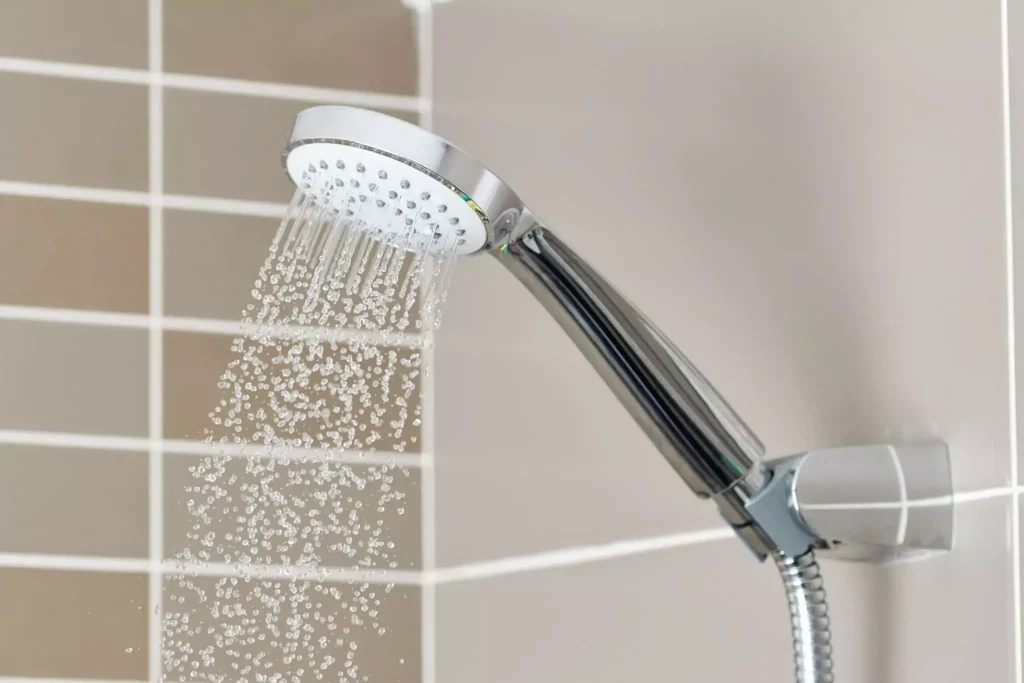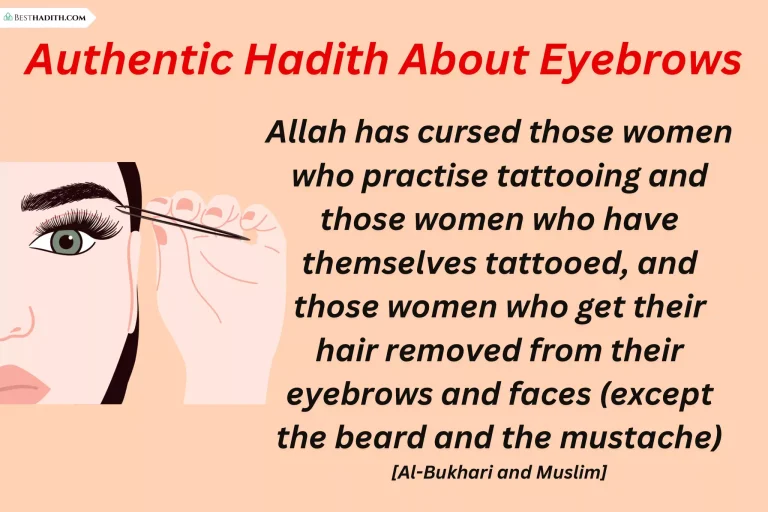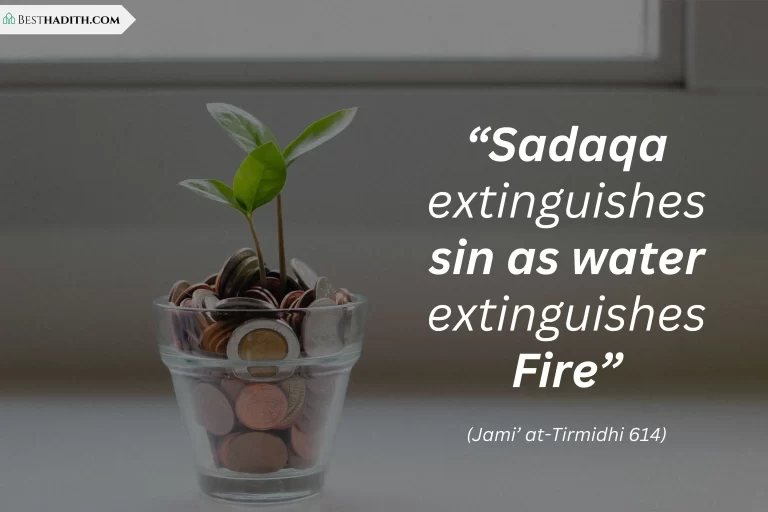5 Beautiful Hadith About Cleanliness In Islam

5 Beautiful Hadith About Cleanliness. Islam is big on being clean. There are lots of hadiths about washing up, smelling nice, keeping your house tidy…the whole deal. It’s not just about the body, either. The Prophet taught us to keep our hearts clean too. Being a good, kind person – that’s part of what it means to be truly clean in Islam.
Hadith About Cleanliness
Ibn al-Musayyib was heard saying:
“God is good and likes what is fragrant (Tayyib is ‘good’ and tib is ‘perfume’, or ‘fragrance.’); clean and likes cleanliness; generous and likes generosity; munificent and likes munificence; so cleanse (I think he said, your courtyards), and do not imitate the Jews.” I mentioned that to Muhajir b. Mismar and he said he had been told by ‘Amir b. Sa‘d, on his father’s authority, that the Prophet had said something similar, but he said, “Cleanse your courtyards.”
Tirmidhi transmitted it. (Mishkat al-Masabih 4487)
‘Amr b. Abi ‘Amr and ‘Ikrimah reported:
Some people of Iraq came and said: Ibn ‘Abbas, do you regard taking a bath on Friday as obligatory ? He said: No, it is only a means of cleanliness, and is better for one who washes oneself. Anyone who does not take a bath, it is not essential for him. I inform you how the bath (on Friday) commenced. The people were poor and used to wear woolen clothes, and would carry loads on their backs. Their mosque was small and its rood was lowered down. It was a sort of trellis of vine. The Messenger of Allah (ﷺ) once came out on a hot day and the people perspired profusely in the woolen clothes so much so that foul smell emitted from them and it caused trouble to each other. When the Messenger of Allah (ﷺ) found the foul smell, he said: O people, when this day (Friday) comes, you should take bath and every one should anoint the best oil and perfume one has. Ibn ‘Abbas then said: Then Allah, the Exalted, provided wealth (to the people) and they wore clothes other than the woolen, and were spared from work, and their mosque became vast. The foul smell that caused trouble to them became non-existent.
(Sunan Abi Dawud 353)

The Messenger of Allah (ﷺ) said:
“Cleanliness is half of faith and al-Hamdu Lillah (all praise and gratitude is for Allah alone) fills the scale, and Subhan Allah (Glory be to Allah) and al-Hamdu Lillah fill up what is between the heavens and the earth, and prayer is a light, and charity is proof (of one’s faith) and endurance is a brightness and the Holy Qur’an is a proof on your behalf or against you. All men go out early in the morning and sell themselves, thereby setting themselves free or destroying themselves.”
(Sahih Muslim 223)
Abu Sufyan said:
“Abu Ayyub Al-Ansari, Jabir bin ‘Abdullah, and Anas bin Malik told me that when this Verse: “In it (the mosque) are men who love to clean and to purify themselves. And Allah loves those who make themselves clean and pure.” was revealed, the Messenger of Allah said: ‘O Ansar! Allah has praised you for your cleanliness. What is the nature of your cleanliness?’ They said: ‘We perform ablution for prayer and we take bath to cleanse ourselves of impurity due to sexual activity, and we clean ourselves with water (after urinating). He said: ‘This is what it is. So adhere to it.'”
(Sunan Ibn Majah 355)
Hadith About Women’s Cleanliness

Narrated Asma (Radi Allahu anha):
A woman came to the Prophet (ﷺ) and said, “If anyone of us gets menses in her clothes then what should she do?” He replied, “She should (take hold of the soiled place), rub it and put it in the water and rub it in order to remove the traces of blood and then pour water over it. Then she can pray in it.”
(Sahih al-Bukhari 227)
Narrated Um-Salama (Radi Allahu anha):
(the mother of the believers) Um Sulaim, the wife of Abu Talha, came to Allah’s Messenger (ﷺ) and said, “O Allah’s Messenger (ﷺ)! Verily Allah is not shy of (telling you) the truth. Is it necessary for a woman to take a bath after she has a wet dream (nocturnal sexual discharge)?” Allah’s Messenger (ﷺ) replied, “Yes, if she notices a discharge.”
(Sahih al-Bukhari 282)
Narrated `Aisha (Radi Allahu anha):
An Ansari woman asked the Prophet (ﷺ) how to take a bath after finishing from the menses. He replied, “Take a piece a cloth perfumed with musk and clean the private parts with it thrice.” The Prophet (ﷺ) felt shy and turned his face. So I pulled her to me and told her what the Prophet (ﷺ) meant.
(Sahih al-Bukhari 315)
`Aisha (Radi Allahu anha) said:
Asma’ asked the Prophet (ﷺ) and then narrated the rest of the tradition to the same effect. He (the Prophet) said: “a musk-scented piece of cloth.” She (Asma’) said: How should I purify with it ? He said: By glory of Allah ! Purify with it, and he covered his face with the cloth. This version also adds: “She asked about the washing because of sexual defilement.” He said: Take your water and purify yourself as best as possible. Then pour water over yourself. ‘Aishah said: The best of the women are the women of the Ansar. Shyness would not prevent them from inquiring about religion and from acquiring deep understanding in it.
(Sunan Abi Dawud 316)
Hadith About Cleanliness In Arabic

وَعَن ابنِ الْمسيب سُمِعَ يَقُولُ: ” إِنَّ اللَّهَ طَيِّبٌ يُحِبُّ الطِّيبَ نَظِيفٌ يُحِبُّ النَّظَافَةَ كَرِيمٌ يُحِبُّ الْكَرَمَ جَوَادٌ يُحِبُّ الْجُودَ فَنَظِّفُوا أُرَاهُ قَالَ: أَفْنِيَتَكُمْ وَلَا تشبَّهوا باليهود ” قَالَ: فذكرتُ ذَلِك لمهاجرين مِسْمَارٍ فَقَالَ: حَدَّثَنِيهِ عَامِرُ بْنُ سَعْدٍ عَنْ أَبِيهِ عَنِ النَّبِيِّ صَلَّى اللَّهُ عَلَيْهِ وَسَلَّمَ مِثْلَهُ إِلَّا أَنَّهُ قَالَ: «نَظِّفُوا أَفْنِيتَكُمْ» . رَوَاهُ التِّرْمِذِيّ
(مشكاة المصابيح 4487)
عَنْ عَمْرِو بْنِ أَبِي عَمْرٍو، عَنْ عِكْرِمَةَ، أَنَّ أُنَاسًا، مِنْ أَهْلِ الْعِرَاقِ جَاءُوا فَقَالُوا يَا ابْنَ عَبَّاسٍ أَتَرَى الْغُسْلَ يَوْمَ الْجُمُعَةِ وَاجِبًا قَالَ لاَ وَلَكِنَّهُ أَطْهَرُ وَخَيْرٌ لِمَنِ اغْتَسَلَ وَمَنْ لَمْ يَغْتَسِلْ فَلَيْسَ عَلَيْهِ بِوَاجِبٍ وَسَأُخْبِرُكُمْ كَيْفَ بَدْءُ الْغُسْلِ كَانَ النَّاسُ مَجْهُودِينَ يَلْبَسُونَ الصُّوفَ وَيَعْمَلُونَ عَلَى ظُهُورِهِمْ وَكَانَ مَسْجِدُهُمْ ضَيِّقًا مُقَارِبَ السَّقْفِ إِنَّمَا هُوَ عَرِيشٌ فَخَرَجَ رَسُولُ اللَّهِ صلى الله عليه وسلم فِي يَوْمٍ حَارٍّ وَعَرِقَ النَّاسُ فِي ذَلِكَ الصُّوفِ حَتَّى ثَارَتْ مِنْهُمْ رِيَاحٌ آذَى بِذَلِكَ بَعْضُهُمْ بَعْضًا فَلَمَّا وَجَدَ رَسُولُ اللَّهِ صلى الله عليه وسلم تِلْكَ الرِّيحَ قَالَ “ أَيُّهَا النَّاسُ إِذَا كَانَ هَذَا الْيَوْمُ فَاغْتَسِلُوا وَلْيَمَسَّ أَحَدُكُمْ أَفْضَلَ مَا يَجِدُ مِنْ دُهْنِهِ وَطِيبِهِ ” . قَالَ ابْنُ عَبَّاسٍ ثُمَّ جَاءَ اللَّهُ بِالْخَيْرِ وَلَبِسُوا غَيْرَ الصُّوفِ وَكُفُوا الْعَمَلَ وَوُسِّعَ مَسْجِدُهُمْ وَذَهَبَ بَعْضُ الَّذِي كَانَ يُؤْذِي بَعْضُهُمْ بَعْضًا مِنَ الْعَرَقِ . (سنن أبي داود 353)
قَالَ رَسُولُ اللَّهِ صلى الله عليه وسلم “ الطُّهُورُ شَطْرُ الإِيمَانِ وَالْحَمْدُ لِلَّهِ تَمْلأُ الْمِيزَانَ . وَسُبْحَانَ اللَّهِ وَالْحَمْدُ لِلَّهِ تَمْلآنِ – أَوْ تَمْلأُ – مَا بَيْنَ السَّمَوَاتِ وَالأَرْضِ وَالصَّلاَةُ نُورٌ وَالصَّدَقَةُ بُرْهَانٌ وَالصَّبْرُ ضِيَاءٌ وَالْقُرْآنُ حُجَّةٌ لَكَ أَوْ عَلَيْكَ كُلُّ النَّاسِ يَغْدُو فَبَائِعٌ نَفْسَهُ فَمُعْتِقُهَا أَوْ مُوبِقُهَا ” . (صحيح مسلم 223)
أَبُو سُفْيَانَ، قَالَ حَدَّثَنِي أَبُو أَيُّوبَ الأَنْصَارِيُّ، وَجَابِرُ بْنُ عَبْدِ اللَّهِ، وَأَنَسُ بْنُ مَالِكٍ، أَنَّ هَذِهِ الآيَةَ، نَزَلَتْ {فِيهِ رِجَالٌ يُحِبُّونَ أَنْ يَتَطَهَّرُوا وَاللَّهُ يُحِبُّ الْمُطَّهِّرِينَ} قَالَ رَسُولُ اللَّهِ ـ صلى الله عليه وسلم ـ ” يَا مَعْشَرَ الأَنْصَارِ إِنَّ اللَّهَ قَدْ أَثْنَى عَلَيْكُمْ فِي الطُّهُورِ فَمَا طُهُورُكُمْ ” . قَالُوا نَتَوَضَّأُ لِلصَّلاَةِ وَنَغْتَسِلُ مِنَ الْجَنَابَةِ وَنَسْتَنْجِي بِالْمَاءِ . قَالَ ” هُوَ ذَلِكَ فَعَلَيْكُمُوهُ ” .
(سنن ابن ماجه 355)
Hadith About Women’s Cleanliness In Arabic
عَنْ أَسْمَاءَ، قَالَتْ جَاءَتِ امْرَأَةٌ النَّبِيَّ صلى الله عليه وسلم فَقَالَتْ أَرَأَيْتَ إِحْدَانَا تَحِيضُ فِي الثَّوْبِ كَيْفَ تَصْنَعُ قَالَ “ تَحُتُّهُ، ثُمَّ تَقْرُصُهُ بِالْمَاءِ، وَتَنْضَحُهُ وَتُصَلِّي فِيهِ ”. (صحیح البخاری 227)
عَنْ أُمِّ سَلَمَةَ أُمِّ الْمُؤْمِنِينَ، أَنَّهَا قَالَتْ جَاءَتْ أُمُّ سُلَيْمٍ امْرَأَةُ أَبِي طَلْحَةَ إِلَى رَسُولِ اللَّهِ صلى الله عليه وسلم فَقَالَتْ يَا رَسُولَ اللَّهِ، إِنَّ اللَّهَ لاَ يَسْتَحْيِي مِنَ الْحَقِّ، هَلْ عَلَى الْمَرْأَةِ مِنْ غُسْلٍ إِذَا هِيَ احْتَلَمَتْ فَقَالَ رَسُولُ اللَّهِ صلى الله عليه وسلم “ نَعَمْ إِذَا رَأَتِ الْمَاءَ ”. (صحیح البخاری 282)
عَنْ عَائِشَةَ، أَنَّ امْرَأَةً، مِنَ الأَنْصَارِ قَالَتْ لِلنَّبِيِّ صلى الله عليه وسلم كَيْفَ أَغْتَسِلُ مِنَ الْمَحِيضِ قَالَ ” خُذِي فِرْصَةً مُمَسَّكَةً، فَتَوَضَّئِي ثَلاَثًا ”. ثُمَّ إِنَّ النَّبِيَّ صلى الله عليه وسلم اسْتَحْيَا فَأَعْرَضَ بِوَجْهِهِ أَوْ قَالَ ” تَوَضَّئِي بِهَا ” فَأَخَذْتُهَا فَجَذَبْتُهَا فَأَخْبَرْتُهَا بِمَا يُرِيدُ النَّبِيُّ صلى الله عليه وسلم. (صحیح البخاری 315)
عَنْ عَائِشَةَ، أَنَّ أَسْمَاءَ، سَأَلَتِ النَّبِيَّ صلى الله عليه وسلم بِمَعْنَاهُ قَالَ ” فِرْصَةً مُمَسَّكَةً ” . قَالَتْ كَيْفَ أَتَطَهَّرُ بِهَا قَالَ ” سُبْحَانَ اللَّهِ تَطَهَّرِي بِهَا وَاسْتَتِرِي بِثَوْبٍ ” . وَزَادَ وَسَأَلَتْهُ عَنِ الْغُسْلِ مِنَ الْجَنَابَةِ فَقَالَ ” تَأْخُذِينَ مَاءَكِ فَتَطَهَّرِينَ أَحْسَنَ الطُّهُورِ وَأَبْلَغَهُ ثُمَّ تَصُبِّينَ عَلَى رَأْسِكِ الْمَاءَ ثُمَّ تَدْلُكِينَهُ حَتَّى يَبْلُغَ شُئُونَ رَأْسِكِ ثُمَّ تُفِيضِينَ عَلَيْكِ الْمَاءَ ” . قَالَ وَقَالَتْ عَائِشَةُ نِعْمَ النِّسَاءُ نِسَاءُ الأَنْصَارِ لَمْ يَكُنْ يَمْنَعُهُنَّ الْحَيَاءُ أَنْ يَسْأَلْنَ عَنِ الدِّينِ وَيَتَفَقَّهْنَ فِيهِ . (سنن ابی داؤد 316)
Hadith On Cleanliness In Urdu

ابن المسیب کو یہ کہتے سنا گیا: “خدا اچھا ہے اور خوشبودار چیزوں کو پسند کرتا ہے (طیب ‘اچھا’ ہے اور تب ‘عطر’، یا ‘خوشبو’)؛ صاف اور صفائی پسند ہے؛ فیاض اور سخاوت پسند کرتا ہے؛ مہربان اور احسان پسند ہے؛ تو پاک ہو جاؤ (میرے خیال میں اس نے کہا، تمہارے صحن) اور یہودیوں کی مشابہت نہ کرو۔ میں نے اس کا ذکر مہاجر سے کیا۔ مسمار اور اس نے کہا کہ اسے عامر بن نے بتایا تھا۔ سعد، اپنے والد کی طرف سے، کہ نبی صلی اللہ علیہ وسلم نے کچھ ایسا ہی کہا تھا، لیکن آپ نے فرمایا: “اپنے آنگنوں کو صاف کرو۔” اسے ترمذی نے نقل کیا ہے۔
(مشكاة المصابيح 4487)
عمرو بی۔ ابی عمرو اور عکرمہ نے بیان کیا: عراق کے کچھ لوگ آئے اور کہا: ابن عباس کیا تم جمعہ کے دن غسل کو فرض سمجھتے ہو؟ آپ صلی اللہ علیہ وسلم نے فرمایا: نہیں، یہ تو صرف صفائی کا ذریعہ ہے، اور دھونے والے کے لیے بہتر ہے۔ جو شخص غسل نہ کرے اس کے لیے ضروری نہیں۔ میں آپ کو بتاتا ہوں کہ (جمعہ کے دن) غسل کیسے شروع ہوا؟ لوگ غریب تھے اور اونی کپڑے پہنتے تھے، اور اپنی پیٹھ پر بوجھ لادتے تھے۔ ان کی مسجد چھوٹی تھی اور اس کی چھت نیچے کی تھی۔ یہ انگور کی بیل کی ایک قسم تھی۔ (سنن أبي داود 353)
رسول اللہ صلی اللہ علیہ وسلم ایک دفعہ گرمی کے دن باہر تشریف لائے اور لوگوں کا اونی کپڑوں میں پسینہ بہت آیا کہ ان سے بدبو آنے لگی اور ایک دوسرے کو تکلیف ہوئی۔ جب رسول اللہ صلی اللہ علیہ وسلم نے بدبو پائی تو فرمایا: اے لوگو جب یہ (جمعہ) کا دن آئے تو تم غسل کر لیا کرو اور ہر ایک کے پاس بہترین تیل اور خوشبو لگانی چاہیے۔ ابن عباس رضی اللہ عنہ نے پھر کہا: پھر اللہ تعالیٰ نے (لوگوں کو) مال دیا اور وہ اونی کے علاوہ کپڑے پہنتے تھے، اور کام سے بچ گئے تھے، اور ان کی مسجد وسیع ہو گئی تھی۔ وہ بدبو جو ان کے لیے پریشانی کا باعث تھی ناپید ہو گئی۔ (سنن ابی داؤد 353)
رسول اللہ صلی اللہ علیہ وسلم نے فرمایا: “پاکیزگی نصف ایمان ہے، اور اللہ کے لیے حمد ہے ترازو کو بھر دیتا ہے، اللہ پاک ہے اور حمد اللہ ہی بھرتا ہے – یا بھرتا ہے – جو درمیان میں ہے۔ مردہ اور زمین اور نماز روشنی ہے اور صدقہ دلیل ہے اور صبر روشنی ہے اور قرآن تمہارے حق میں یا تمہارے خلاف حجت ہے ہر کوئی اپنی جان بیچ کر آزاد کرنے لگتا ہے۔
(صحيح مسلم 223)
ابو سفیان نے کہا: “مجھے ابو ایوب الانصاری، جابر بن عبداللہ اور انس بن مالک نے بیان کیا کہ جب یہ آیت: “اس (مسجد) میں وہ لوگ ہیں جو صفائی اور طہارت کو پسند کرتے ہیں۔ اور اللہ تعالیٰ ان لوگوں کو پسند کرتا ہے جو اپنے آپ کو پاک و پاکیزہ بنائیں۔” نازل ہوئی تو رسول اللہ صلی اللہ علیہ وسلم نے فرمایا: “اے انصار! اللہ نے تمہاری صفائی کی تعریف کی ہے، تمہاری صفائی کی نوعیت کیا ہے؟” انہوں نے کہا: ہم نماز کے لیے وضو کرتے ہیں اور ہم شہوت کی وجہ سے نجاست سے پاک ہونے کے لیے غسل کرتے ہیں، اور (پیشاب کرنے کے بعد) اپنے آپ کو پانی سے صاف کرتے ہیں، آپ صلی اللہ علیہ وسلم نے فرمایا: ‘یہ وہی ہے، لہذا اس پر قائم رہو’۔ (سنن ابن ماجه 355)
Hadith About Women’s Cleanliness In Urdu
اسماء رضی اللہ عنہا نے بیان کیا: ایک عورت نبی کریم صلی اللہ علیہ وسلم کے پاس آئی اور کہا کہ اگر ہم میں سے کسی کو اپنے کپڑوں میں حیض آجائے تو وہ کیا کرے؟ اس نے جواب دیا کہ وہ (مٹی ہوئی جگہ کو پکڑ کر) اسے رگڑ کر پانی میں ڈالے اور خون کے نشانات کو دور کرنے کے لیے اسے رگڑ کر اس پر پانی بہائے پھر اس میں نماز پڑھ سکتی ہے۔ (صحیح البخاری 227)
ام سلمہ رضی اللہ عنہا بیان کرتی ہیں: (مومنوں کی والدہ) ام سلیم جو کہ ابو طلحہ کی بیوی تھیں، رسول اللہ صلی اللہ علیہ وسلم کی خدمت میں آئیں اور عرض کیا: یا رسول اللہ صلی اللہ علیہ وسلم! گیلے خواب (رات کا جنسی اخراج) دیکھنے کے بعد عورت کے لیے غسل کرنا؟ آپ صلی اللہ علیہ وسلم نے فرمایا: ہاں، اگر وہ رطوبت کو دیکھے۔ (صحیح البخاری 282)
:عائشہ رضی اللہ عنہا نے بیان کیا
ایک انصاری عورت نے رسول اللہ صلی اللہ علیہ وسلم سے پوچھا کہ حیض سے فارغ ہو کر غسل کرنا کیسا ہے؟ آپ نے فرمایا: ایک ٹکڑا لے کر ایک کپڑا جس میں مشک لگا ہوا ہو اور اس سے شرمگاہ کو تین بار صاف کرو۔ رسول اللہ صلی اللہ علیہ وسلم نے شرم محسوس کی اور اپنا چہرہ پھیر لیا۔ چنانچہ میں نے اسے اپنی طرف کھینچ لیا اور بتایا کہ رسول اللہ ﷺ کا کیا مطلب ہے۔
(صحیح البخاری 315)
عائشہ نے کہا: اسماء رضی اللہ عنہ نے رسول اللہ صلی اللہ علیہ وسلم سے پوچھا اور پھر باقی روایت بھی اسی طرح بیان کی۔ آپ صلی اللہ علیہ وسلم نے فرمایا: ”کپڑے کا ایک ٹکڑا جس میں مشک کی خوشبو ہو۔ اسماء رضی اللہ عنہا نے کہا: میں اس سے کیسے پاک کروں؟ اس نے کہا: اللہ کی قسم! اس سے پاک ہو جاؤ اور اس نے اپنے چہرے کو کپڑے سے ڈھانپ لیا۔ اس ورژن میں یہ بھی شامل ہے: “اس نے جنسی ناپاکی کی وجہ سے دھونے کے بارے میں پوچھا۔” آپ صلی اللہ علیہ وسلم نے فرمایا: اپنا پانی لے لو اور حتی الامکان پاک ہو جاؤ۔ پھر اپنے اوپر پانی ڈالیں۔ عائشہ رضی اللہ عنہا نے کہا: عورتوں میں سب سے بہتر انصار کی عورتیں ہیں۔ شرم انہیں دین کے بارے میں دریافت کرنے اور اس میں گہری سمجھ حاصل کرنے سے نہیں روک سکتی تھی۔
(سنن ابی داؤد 316)
Conclusion
So, all these hadiths about being clean in Islam basically say this: keep yourself fresh, keep your home tidy, and be a good person inside too. It all shows you really care about your faith. The Prophet (peace be upon him) was all about that – being clean shows you’re devoted to Allah. Also, read hadith about prayer. Women’s hygiene and health are particularly highlighted, aligning with the Prophet’s (peace be upon him) teachings. The use of natural oils, like olive oil endorsed in Hadith, bridges skincare with Islamic principles. The Prophet (peace be upon him) recommended, “Eat olive oil and anoint yourselves with it, for it is from a blessed tree.” Building on this wisdom, I will recommend you include these natural oils in your skin and body care routine, especially for women. Give it a try, and you’ll witness the results in the initial days because these oils are 100% natural. For more information on natural oils, you can explore amoils.com, a website dedicated to promoting the benefits of natural skincare.






